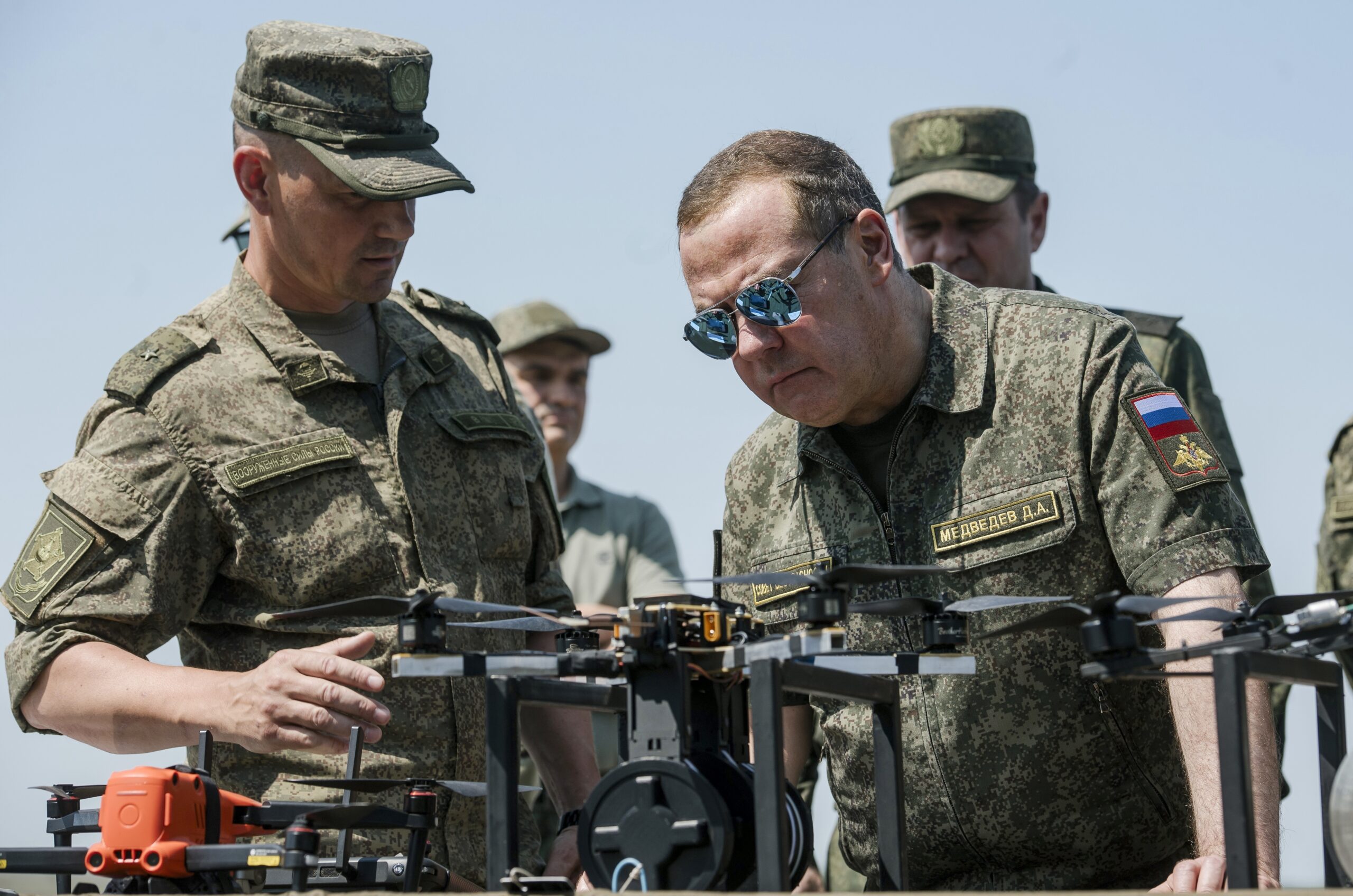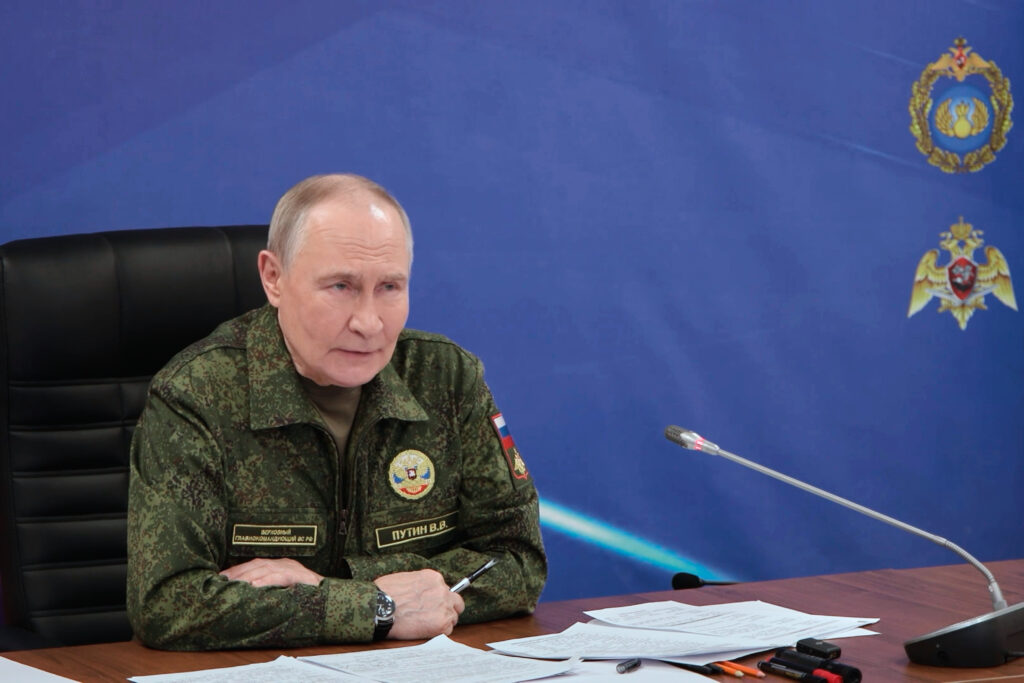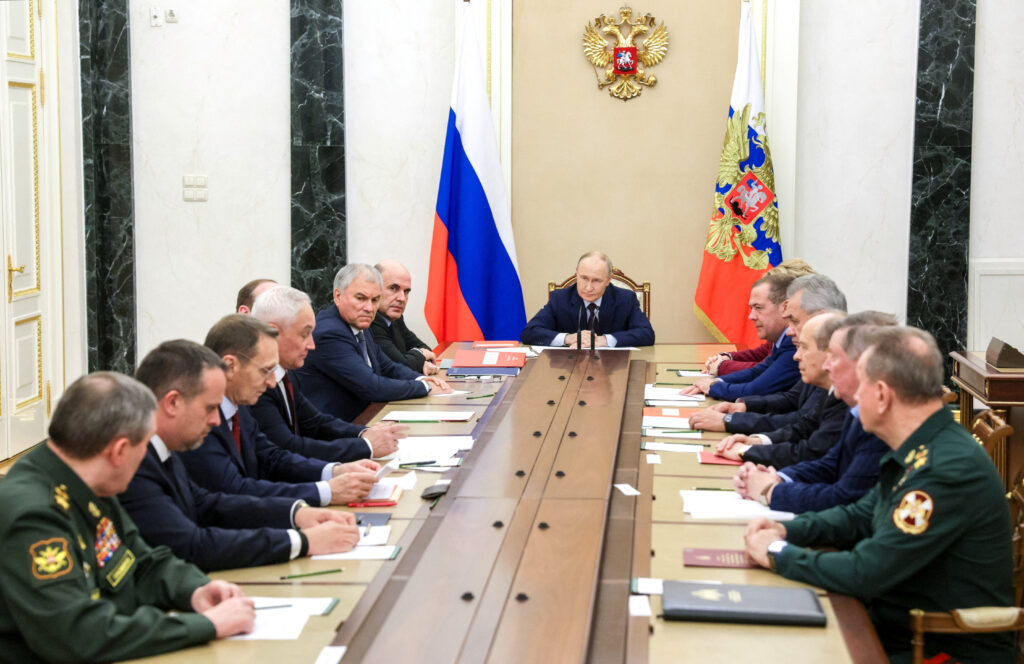Vladimir Putin often speaks about how participants in the war with Ukraine should become the «new» or «true» elite, replacing the existing one. The Kremlin’s political bloc, led by Sergei Kiriyenko, organizes personnel competitions and training programs for military personnel, while governors follow suit. Major media outlets constantly report on appointments given to former military personnel. Putin’s words and the political bloc’s efforts may create the impression that a full-scale elite replacement is underway in Russia, with the state apparatus actively militarizing. However, this impression is deceptive: significant posts are typically occupied by officials or deputies who only publicly declare their participation in combat. Actual military personnel, meanwhile, receive roles related to interacting with fellow war participants or positions without real influence or control over financial flows, such as in youth, security, or patriotic education committees.
Militarization manifests differently: civilian officials are adopting barracks-like behavior. Some have spent time on the front lines, but most have not. Nevertheless, they pick up on Putin’s obsession with the war, adopting military jargon mixed with the corporate language of the political bloc. Many managers start wearing militarized clothing and communicating with subordinates in a barracks style. A new etiquette and behavioral code is forming within the bureaucratic apparatus. The civilian power vertical is adopting military practices, leading to its degradation.
Statutory Expressions
One of the favorite phrases in Russian officials’ lexicon is «ready to fulfill assigned objectives» (or «we are fulfilling assigned objectives»). This phrase comes from the Disciplinary Charter of the Russian army, which obliges soldiers to «unquestioningly fulfill assigned objectives under any conditions, including at the risk of their lives.» Since the start of the full-scale war, references to «readiness to fulfill assigned objectives» have become common in soldiers’ complaints and their boastful addresses to superiors. This phrase has also increasingly appeared in civilian officials’ speech (it was used before the war but much less frequently). Mentioning «assigned objectives has become a ritual during Vladimir Putin’s meetings with acting and newly appointed regional heads (naturally, governors use this phrase). Volgograd region’s head, Andrey Bocharov, a former paratrooper, referenced these «objectives» five times in a dialogue with the president. Regional and federal leaders use this phrase at other events as well, so deeply has it embedded itself in their lexicon. Even Putin himself now frequently mentions «assigned objectives.» Previously, this phrase was absent from his speeches; «tasks» were primarily «solved» and were mostly «socio-economic.»
Other military terms are also gaining traction. For instance, «liquidation» in Russian official military reports often refers to the destruction of enemy equipment or personnel. Irkutsk region’s governor, Igor Kobzev, spoke to Putin about the «liquidation of accumulated environmental harm» and the «liquidation» of dilapidated housing. Kobzev called this process a «construction battle.»
«Today, we’ve liquidated over 600 buildings. A construction ‘battle’ is underway. About 60 buildings remain. We must complete this soon; 2028 is the deadline for full liquidation,» boasted the Irkutsk governor.
Civilian officials have also grown fond of the word «report.» While it can be used in regular bureaucratic discourse, it is more common among military personnel («permission to report,» «report the situation»). Federal officials and governors report to the president, while ministers and mayors report to regional heads. There are even examples of the military phrase «permission to address» in civilian speech: Olga Klyuchevskaya, an employee of the «Competence Centers» project under the «Russia — Land of Opportunities» organization (which conducts personnel competitions for the political bloc), began her speech to Putin this way.
The speech of civilian officials has begun to resemble military reports or Defense Ministry frontline updates in its rhythm and structure. Former Krasnodar mayor and then-State Duma deputy Yevgeny Pervyshov responded to Putin’s question about his hometown’s situation: «The situation is operational; all processes that were launched continue their development.» Deputy Prime Minister Dmitry Chernyshenko reported to the president: «We’ve worked through a lot. Proposals are supported. Most importantly, tools have been created to get this done quickly.»
Politicians and officials are starting to rephrase the term «special military operation,» and this applies not only to hawks but also to systemic party members expected to show moderation and a peaceful stance. For example, the head of the New People party, Alexey Nechayev, proposed a «special economic operation,» an idea later adopted by LDPR representatives.
Call Signs and Khaki
Officials and deputies who participated in combat have begun publicly using military call signs. The aforementioned former Krasnodar mayor, now Tambov region governor, Yevgeny Pervyshov, took the call sign «Kuban.» The late Primorsky region vice-governor Sergey Efremov used «Kubinez.» Even the president’s envoy to the Far Eastern Federal District, Yuri Trutnev, adopted the call sign «Jupiter.»
Another sign of the civilian elite’s militarization is clothing resembling military uniforms. Some officials and state corporation heads wore such attire before the full-scale war but did so sparingly. Now, we see Vice Prime Ministers Yuri Trutnev and Marat Khusnullin, as well as First Deputy Head of the Presidential Administration Sergei Kiriyenko, regularly wearing khaki. Dmitry Medvedev, Deputy Chairman of the Security Council and former president and prime minister, prefers trench coats and commissar-style leather jackets. Militarized clothing—trench coats or jackets with chevrons—is also worn by young governors Georgy Filimonov (Vologda region) and Vyacheslav Fedorishchev (Samara region).
This barracks fashion aligns with the corporate-Komsomol rhetoric actively promoted by the Presidential Administration’s political bloc in state governance. Participants in Kremlin personnel courses speak of «teamwork» and «cohesive teams.» This lexicon is also adopted by participants in the «Time of Heroes» competitions for military personnel, organized by Kiriyenko’s subordinates.
Poor Governance
Along with barracks lexicon and khaki attire, barracks practices are seeping into civilian officials’ work. Young, careerist governors Vyacheslav Fedorishchev and Georgy Filimonov best capture this «military» trend. They regularly reprimand subordinates, sometimes crossing the bounds of «civilian» decorum. The roots of this militarization are easy to trace. Vladimir Putin enjoys the war process itself—interacting with the military and even directly managing military units. In the military, orders from superiors are not debated; per the Charter, «assigned objectives» must be fulfilled without unnecessary discussion. This military management style logically extends Putin’s power vertical, where proposals from the president have long ceased to be debated, gradually turning into demands and then orders. This transition was vividly demonstrated during the Security Council meeting before the 2022 Ukraine invasion, where Putin ostensibly sought members’ opinions but ignored dissenting views from then-Security Council Secretary Nikolai Patrushev and SVR head Sergey Naryshkin (the latter receiving a sharp rebuke from the president).
The ensuing war accelerated the adoption of military practices in state governance and the militarization of the civilian elite. This transformation bodes ill for both the governance system and Russian citizens. Putin’s views on the economy and the frontline situation can be described as overly optimistic and detached from reality. However, in the «fulfilling assigned objectives» mode, his demands—effectively orders—must be executed regardless of whether they bring benefit or harm. Moderately pessimistic economic forecasts from officials (Economic Development Minister Maxim Reshetnikov, Central Bank head Elvira Nabiullina) are starting to be seen as subversive, as Putin speaks of «economic growth,» wants to see it, and believes in it. More compliant subordinates, like Deputy Head of the Presidential Administration Maxim Oreshkin, are ready to support this optimism. Even Moscow’s mayor, Sergey Sobyanin, did not challenge Putin’s ultra-optimistic view of Moscow salaries.
In the Vologda region, the dominance of barracks practices has already led to former allies of Georgy Filimonov leaving their posts. At the federal level, military discipline is being introduced more slowly, so immediate effects are not yet apparent, but the negative consequences of elite militarization are already clear.










